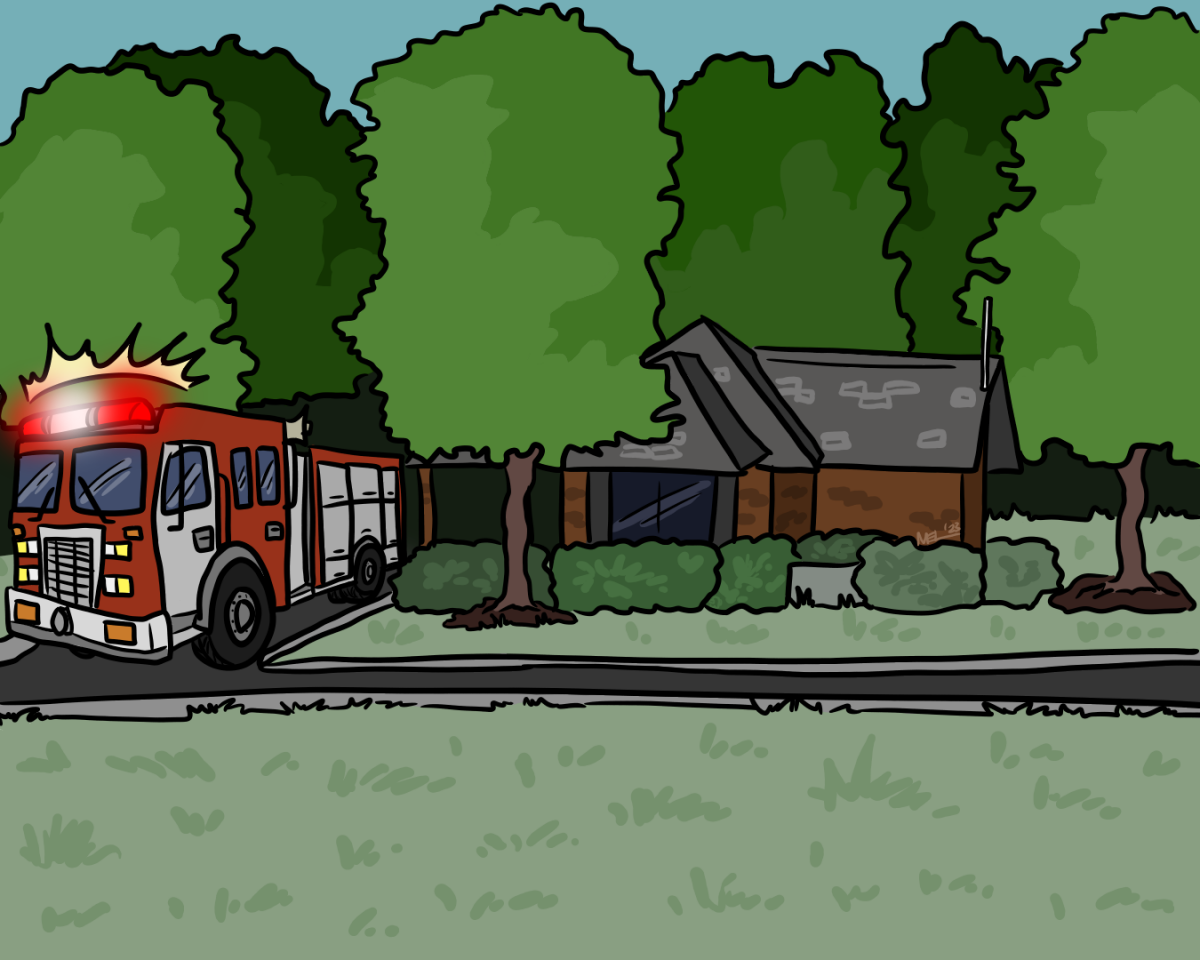Featured Image: Mel Lhuillier | Marlin Chronicle
Virginia Wesleyan University presents security measures more intensively than many other institutions, but a string of recent events has emphasized the inherent need for these types of safety procedures.
According to the VWU website, “Virginia Wesleyan believes that a safe, secure environment is essential to learning and to the peace of mind of our students, their parents and our faculty. For this reason, we employ a staff of full-time security officers available 24/7 to assist our campus community.”
To further expand their safety resources, VWU security enlists off-campus help. The Norfolk branch of the FBI will hold an active threat training on campus on Feb. 9 in the Brock Room. Discussion topics for this event include the “Run, Hide, Fight” method, situational awareness and the “See Something, Say Something” policy.
Krystal Kawabata, Public Affairs Specialist with FBI Norfolk, said the FBI considers community education part of their role. “We respond both in a time of crises, as well as help the community prepare ahead of time for real-world scenarios, such as active-shooter presentations,” Kawabata said.
While this is not the first time VWU has offered these types of training opportunities, the number of tragedies this one follows has boosted its prevalence.
A 14-minute course entitled “Active Shooter: Run, Hide Fight for Students” landed in the email inboxes of VWU community members on Nov. 21, a time when mass shootings at University of Virginia and Club Q, an LGBTQ+ nightclub in Colorado, had all occurred within the last 10 days. Coincidentally, the Chesapeake Walmart shooting happened the day after and the pair of Virginia Beach Food Lion shootings happened just two days after.
According to 13News Now, the Hampton Roads area saw a 7% increase in homicides from 2021 to 2022. Virginia Beach in particular rose from 14 to 22 police-reported homicides, as reported in 13News Now articles.
Although less prominent, human violence is not the only factor that has kept the community on their toes in recent months. On the night of Jan. 21, an entourage of emergency vehicles flocked to VWU in response to a smell of smoke within the Honors Village (Village IV).
“I was woken up by really loud sirens and a red light beaming in my face,” freshman Ryleigh Taylor said. Taylor said that when she went outside to investigate, she only noticed those inside nearby houses who were also curious about the havoc outside and firefighters on the scene. She said that she does not recall seeing security on the scene.
Freshman Anna Greenleaf, whose house is across the sidewalk from Taylor, said that the source of the smoke smell likely came from another house in her hall. However, those who responded to the scene left most residents without a clear explanation of what happened.
While the first responders did confirm no one was at risk, the incident was enough to put students on edge. In days following, freshman Elena Lichtenwalner said that steam coming from her townhouse due to a running dryer evoked messages of concern from neighbors who evidently felt anxious about a repeat of that weekend.
Despite the confusion that the event spurred, the response was at least effective in assuring that nothing would be set on fire. Additionally, no smoke problems have since been reported and Honors Village residents have slept relatively siren-free.
Although security measures at VWU have proven fairly successful, students have observed areas where security is thinner. “They don’t typically ID older adults,” freshman Liese Hazelwood said about the gatehouse entryway.
Hazelwood wonders about the procedures on that matter, saying she is not sure if security simply views those older than the typical college-aged students as less of a concern.
Other students have shared experiences where VWU security went the extra mile for them. According to junior Oliver Chauncey, security has been diligent in responding to the safety needs of individuals.
Chauncey said that when they were a freshman, security got them through the very first time they had a seizure. Chauncey said that despite the inability to even form coherent sentences over their phone call to security, “they were able to dispatch somebody to me and get the EMTs over.” They also noted how security effectively coordinated with the Office of Residence Life during all of this to get a hold of Chauncey’s emergency contacts.
Chauncey said security made sure they had everything they needed out of their room before leaving for the hospital and even went as far as picking them up from the hospital to ensure a safe return back home.
Although security might not have training specific to every individual situation, Chauncey said that “they are specifically trained in how to respond to an emergency.”
Chauncey has undergone emergency training of their own, and plans to attend the upcoming active threat training. They referenced the statistic of 39 mass shootings nationwide last month alone, along with the recent ODU shooting, to emphasize the importance of college students being informed about handling life-threatening situations.
By Lily Reslink
lbreslink@vwu.edu



